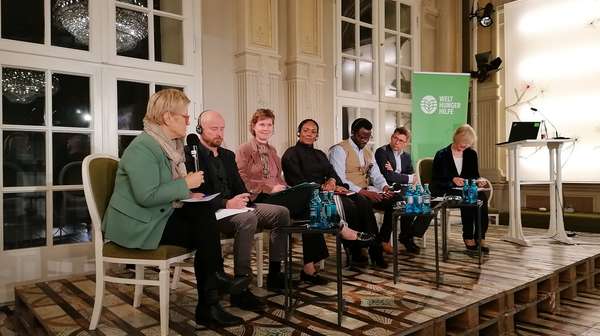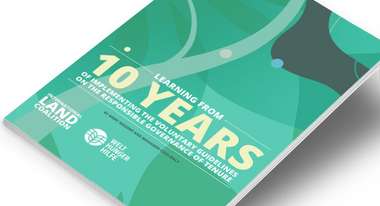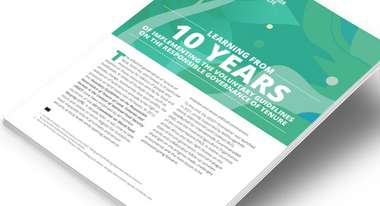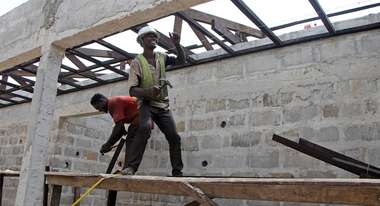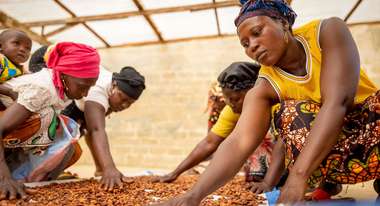Welthungerhilfe co-organized two consecutive events on November 28th and 30th to take stock of the guidelines, assess their potential and pave the way forward for responsible land governance and food security.
Learning from the VGGT+10 Initiative
Equitable access to land and food security for all: What we have learned 10 years after the implementation of the Voluntary Guidelines on Tenure.
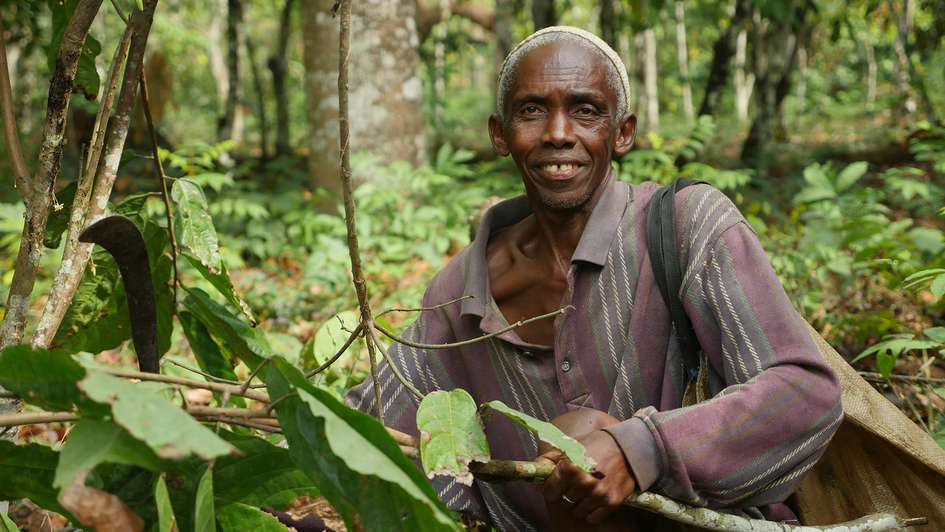
It was a milestone for securing legitimate tenure rights of vulnerable people worldwide, when the Voluntary Guidelines on the Responsible Governance of Tenure of Land, Fisheries and Forests in the Context of National Food Security (in short VGGT) were endorsed by the Committee on Food Security (CFS) in 2012. Over 10 years have passed since then and the at the time peaking attention on land governance is not the same anymore.
Recognizing the unwavering centrality of the guidelines to achieving equitable access to natural resources and food security for all, Welthungerhilfe (WHH) joined forces with the International Land Coalition (ILC), Gesellschaft für Internationale Zusammenarbeit (GIZ), and the Food and Agriculture Organization of the United Nations (FAO) to launch the VGGT+10 initiative and restrengthen the momentum. After a year-long journey of assessments, dialogues, and implementation of joint action plans across 12 countries in Africa and Asia, it is time to look at the insights and accomplishments achieved, and to strategize on how to grow the planted seeds.
Background – What are the VGGT?
Land is a valuable resource. This is especially true for millions of people who, as smallholders and rural communities, depend directly on it for their income and livelihoods. At the same time, it is equally true for investors, politicians, and many other stakeholders who have an ever-increasing demand for productive land. Since customary tenure rights are often not officially recognized, there have been and continue to be cases of land grabbing and people being deprived of their livelihoods.
Following the footsteps of FAO’s Voluntary Guidelines on the Right to Food, the VGGT came to life as an instrument to react to the increasing competition and the urgent need to safeguard the tenure rights of vulnerable populations worldwide. Setting out principles and internationally accepted standards of responsible governance of tenure, it was accepted by all member states of the CFS, while recognizing the pivotal role of equitable access to land to achieve food security and eradicate poverty and hunger. As an international soft law instrument, the translation of the guidelines into national policies and laws is central to sustaining their impact on the ground.
Now more than ever, the responsible governance of tenure has materialized as a crucial element to confront the increasing challenges of a growing population, food security, environmental degradation, and climate change. This is accompanied by the realization that inadequate and insecure tenure rights can further marginalize communities depending on the access to natural resources for their livelihood, and fuel conflicts and competition over these resources.
The VGGT+10 initiative aimed at spotlighting again the significance of the VGGT, while generating further political will of actors in the land sector to commit to the cause of secure and equitable tenure rights.
Looking Back – Accomplishments of the VGGT+10 Initiative
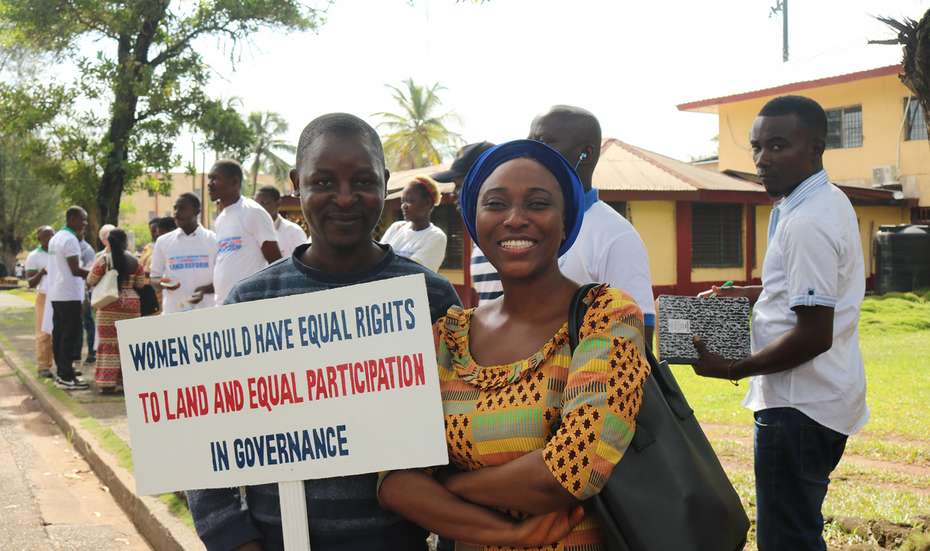
1. Cross-Country Knowledge Generation
To inform in-country processes and international advocacy endeavors, light country assessments were conducted in each participating country. The current status of land governance was assessed, using the VGGT as a benchmark.
List of Participating Countries in the VGGT+10 Initiative
- Benin
- Burkina Faso
- Cambodia
- Cameroon
- Ethiopia
- Laos
- Liberia
- Madagascar
- Malawi
- Senegal
- Sierra Leone
- Uganda
Conducted by Marc Wegerif and Mohamed Coulibaly, the 12 country reports formed the basis for in-country dialogues and the formulation of action plans, while cross-country conclusions and recommendations were utilized for international advocacy endeavors.
The assessments showed that there has been significant progress in improving policies and legislation on the governance of tenure, with eleven of the twelve countries passing new policies and/or legislation or making major amendments. Many of the improved policies are aligned with the VGGT and support their principles. This includes strengthened women’s land rights, improved legal recognition of customary and communal tenure systems, and greater recognition of the importance of effective, transparent, and non‑discriminatory land governance and administration.
The most recent example is Sierra Leone which passed the Customary Land Rights Act and the National Land Commission Act in 2022, requiring Free Prior and Informed Consent (FPIC) of communities in every new land development endeavor and women’s participation in land decision‑making. Policy processes have become more inclusive and consultative in all countries, with enhanced stakeholder involvement, dialogue, and the establishment of multi-stakeholder platforms (MSPs) on land.
On the other hand, the study found that the implementation of these existing policies and laws remains a key challenge across all localities. In many cases, policy reforms do not yet translate into tangible changes in the lives of people on the ground. The registration of communal land rights has been slow in almost all countries. Likewise, in all countries, power relations and inequalities continue to marginalize women and other vulnerable groups in practice. This can be attributed to different factors, like inadequate financial and human resources, lacking transparency and accountability, insufficient access to knowledge and justice by citizens, or resistance by political or traditional elites.
To learn more about the findings and resulting recommendations for the way forward, access the newly launched synthesis report of the initiative and a summary 2-pager.
2. Strengthening VGGT Implementation at the Country-Level
To accelerate the impact of the VGGT on the ground, the initiative focused on increasing awareness and political commitment on the country level. Facilitated by national multi-stakeholder platforms (MSP) on land governance in each country, national dialogue events were held, in which actors from various sectors such as the government, civil society, traditional authorities, communities, private sector, and academia could come together to jointly discuss the way forward. Based on the assessments and joint discussions, strategic action plans were developed to improve the VGGT implementation in the future. For Welthungerhilfe, the four Land for Life Multi-Actor-Platforms in Burkina Faso, Ethiopia, Liberia, and Sierra Leone spearheaded the process.
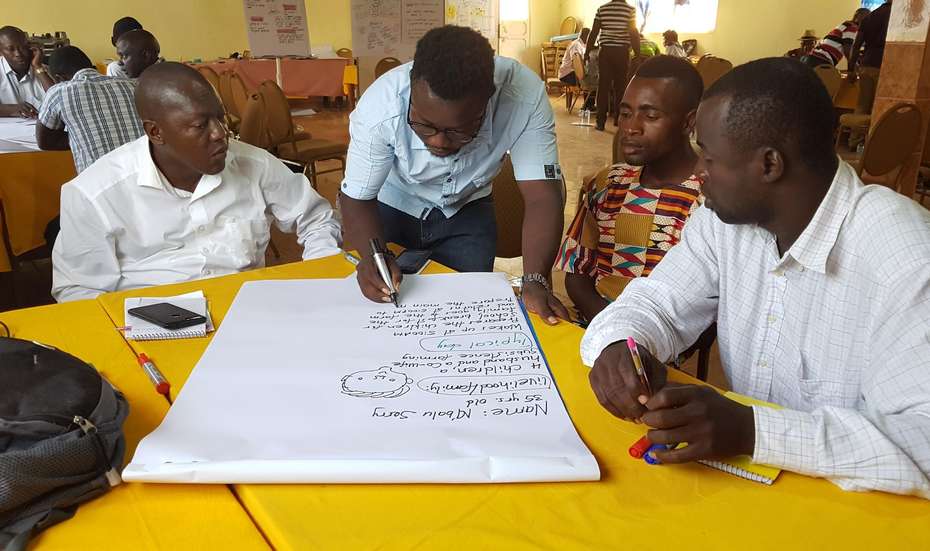
The jointly developed action plans were commenced to be implemented with seed funding from the initiative. In Burkina Faso, for example, the Ministry of Agriculture took the lead in translating the Guidelines into local languages and making them available to populations with little or no literacy. In a national advocacy workshop on women’s land rights, the ministry in charge of Gender and Family brought together customary chiefs from different areas of the country to sensitize them on women’s land rights.
In Liberia, the National Fisheries and Aquaculture Authority, trained their staff and fishermen on the VGGT, as the sector was insufficiently involved in the implementation of the guidelines before the initiative. Furthermore, a former Technical Unit on the VGGT from the government that had been established after the adoption of the VGGT, but ceased to be active in the meantime, was revitalized. In Ethiopia, where the knowledge of the VGGT in public offices on sub-national levels was identified to be low, additional regional dialogues were organized to increase political awareness and commitment.
3. Raising Commitment on the International Level
To sustain the impact of the VGGT on the ground, it is equally important to raise international commitment to the guidelines. The assessment showed the crucial role that international institutions, donors and governments played in the past 10 years (and continue to play in the future). They ensure the necessary backing, credibility, and resources to strengthen civil society and institutional capacities in the countries. The world’s attention on tenure rights has dropped down on the international priority list in the past 10 years, compromising progress on sustainable food systems, human rights, and secure livelihoods. Several international engagements in the anniversary year were taken as an opportunity to regenerate attention and highlight the importance of access to land in many contemporary challenges.
-
The initiative was officially launched in May 2022 at the Global Land Forum in Jordan. In a high-level meeting, tandems of government and civil society representatives of each participating country came together to discuss common challenges, point out pathways to accelerate the implementation of progressive land legislation and assess the potential of their partnership. It has thus provided an ideal platform to introduce the Initiative and voice its objectives on an international scale.
-
In October 2022, the international land community convened for a hybrid event before the annual Plenary Session of CFS in Rome. As part of the 10th-anniversary commemoration of the guidelines, FAO organized the high-level meeting to assess lessons learned over the past ten years, remind policymakers and stakeholders of the potential the VGGT hold, and to re-confirm political, policy, and financial commitments to strengthen their future implementation. It was an ideal space for the VGGT+10 consultant Marc Wegerif to present preliminary findings from the VGGT+10 assessment and to contribute to discussions on accelerating impact at scale.
-
In November 2022, WHH, together with the German Institute for Global and Area Studies (GIGA) / Land Matrix Initiative (LMI), and International Land Coalition (ILC), and with contributions by TMG Research and Working Group on Peace and Development (FriEnt), co-organized two consecutive events. First, a virtual thematic exchange established a space for international practitioners to debate the progress made and current challenges they face. Interactive working groups discussed approaches for improved utilization of the guidelines, such as multi-stakeholder partnerships, data for accountability or human-rights-based tools. Based on the event, a set of written recommendations was produced that was then fed into the second event, an in-person political panel event in Berlin. Panelists from the German Government (Renate Künast, Svantje Nielsson), the Liberia Land Authority (Ellen O. Pratt), the Land Matrix Initiative (Dr. Ward Anseeuw) and from Land for Life Sierra Leone (Berns K. Lebbie) debated the VGGT and Germany’s role in their implementation. The consecutive events allowed to take stock and raise commitment to the VGGT on both the German and the international levels.
-
Finally, a virtual closing event will take place on 4th of July, to disseminate the insights and products of the initiative, and give space to partners for voicing outcomes and learnings from the country level.
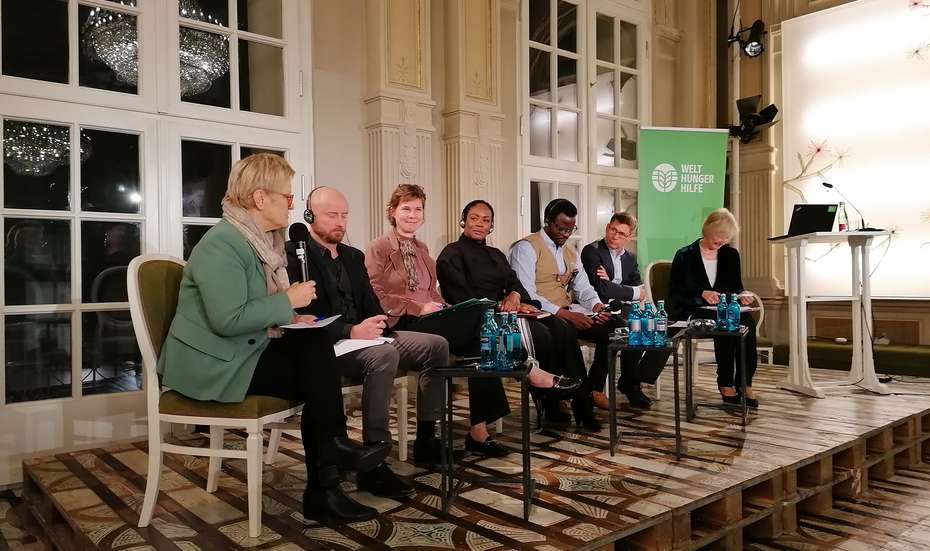
Looking Ahead: How to Bridge the Implementation Gap?
The VGGT+10 initiative took a central place in revitalizing the international debate on the importance of responsible governance of tenure and generating commitment and strategic action on the country level. Now, it is crucial to not leave the planted seeds without water. Action plans developed in the countries need to be fully implemented, generated recommendations need to be addressed, and the outcomes of international discussions, like breaking up silos and connecting the land debate to nexus topics such as climate change or land degradation, need to be followed up. The anniversary year of the VGGT generated not only attention but also pathways into the future that need to be utilized. It will take resources and commitment to carry the initiated processes into a successful future.
The potential of responsible land governance, the VGGT, and partnership for reaching the goal of food security for all was laid out. Now it is time to further take it up and make sure international soft law and national policies translate into changes in the lives of people on the ground.





